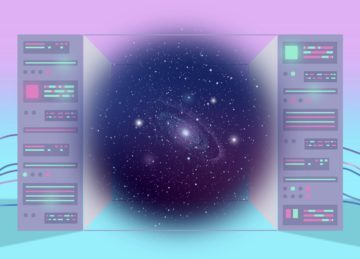Charlie Wood in Quanta:
 Inside a soundproofed crate sits one of the world’s worst neural networks. After being presented with an image of the number 6, it pauses for a moment before identifying the digit: zero. Peter McMahon, the physicist-engineer at Cornell University who led the development of the network, defends it with a sheepish smile, pointing out that the handwritten number looks sloppy. Logan Wright, a postdoc visiting McMahon’s lab from NTT Research, assures me that the device usually gets the answer right, but acknowledges that mistakes are common. “It’s just this bad,” he said.
Inside a soundproofed crate sits one of the world’s worst neural networks. After being presented with an image of the number 6, it pauses for a moment before identifying the digit: zero. Peter McMahon, the physicist-engineer at Cornell University who led the development of the network, defends it with a sheepish smile, pointing out that the handwritten number looks sloppy. Logan Wright, a postdoc visiting McMahon’s lab from NTT Research, assures me that the device usually gets the answer right, but acknowledges that mistakes are common. “It’s just this bad,” he said.
Despite the underwhelming performance, this neural network is a groundbreaker. The researchers tip the crate over, revealing not a computer chip but a microphone angled toward a titanium plate that’s bolted to a speaker. Other neural networks operate in the digital world of 0s and 1s, but this device runs on sound.
More here.
